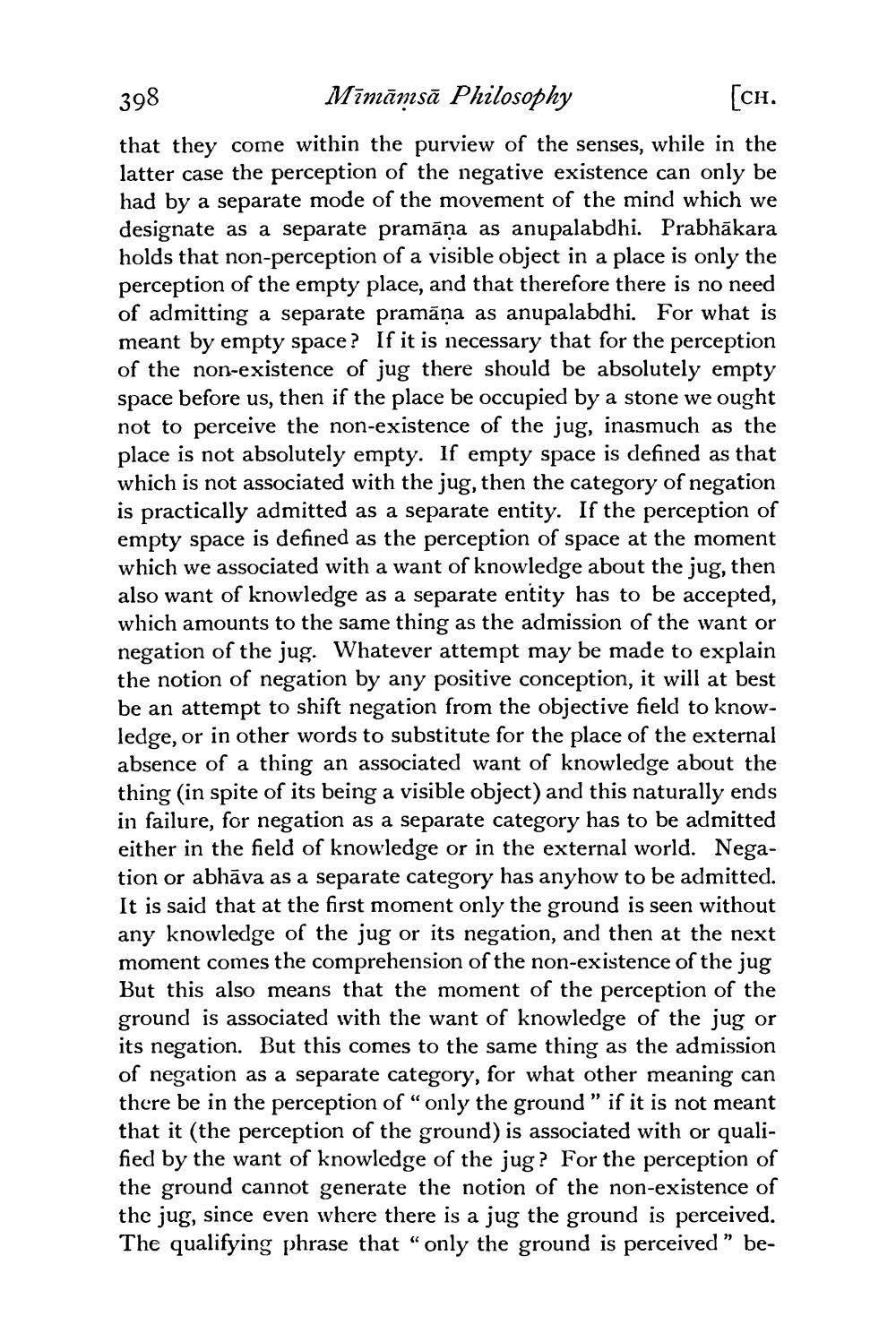________________
398
Mīnāmsā Philosophy
[ch. that they come within the purview of the senses, while in the latter case the perception of the negative existence can only be had by a separate mode of the movement of the mind which we designate as a separate pramāņa as anupalabdhi. Prabhākara holds that non-perception of a visible object in a place is only the perception of the empty place, and that therefore there is no need of admitting a separate pramāņa as anupalabdhi. For what is meant by empty space? If it is necessary that for the perception of the non-existence of jug there should be absolutely empty space before us, then if the place be occupied by a stone we ought not to perceive the non-existence of the jug, inasmuch as the place is not absolutely empty. If empty space is defined as that which is not associated with the jug, then the category of negation is practically admitted as a separate entity. If the perception of empty space is defined as the perception of space at the moment which we associated with a want of knowledge about the jug, then also want of knowledge as a separate entity has to be accepted, which amounts to the same thing as the admission of the want or negation of the jug. Whatever attempt may be made to explain the notion of negation by any positive conception, it will at best be an attempt to shift negation from the objective field to knowledge, or in other words to substitute for the place of the external absence of a thing an associated want of knowledge about the thing (in spite of its being a visible object) and this naturally ends in failure, for negation as a separate category has to be admitted either in the field of knowledge or in the external world. Negation or abhāva as a separate category has anyhow to be admitted. It is said that at the first moment only the ground is seen without any knowledge of the jug or its negation, and then at the next moment comes the comprehension of the non-existence of the jug But this also means that the moment of the perception of the ground is associated with the want of knowledge of the jug or its negation. But this comes to the same thing as the admission of negation as a separate category, for what other meaning can there be in the perception of “only the ground” if it is not meant that it (the perception of the ground) is associated with or qualified by the want of knowledge of the jug? For the perception of the ground cannot generate the notion of the non-existence of the jug, since even where there is a jug the ground is perceived. The qualifying phrase that “only the ground is perceived” be




